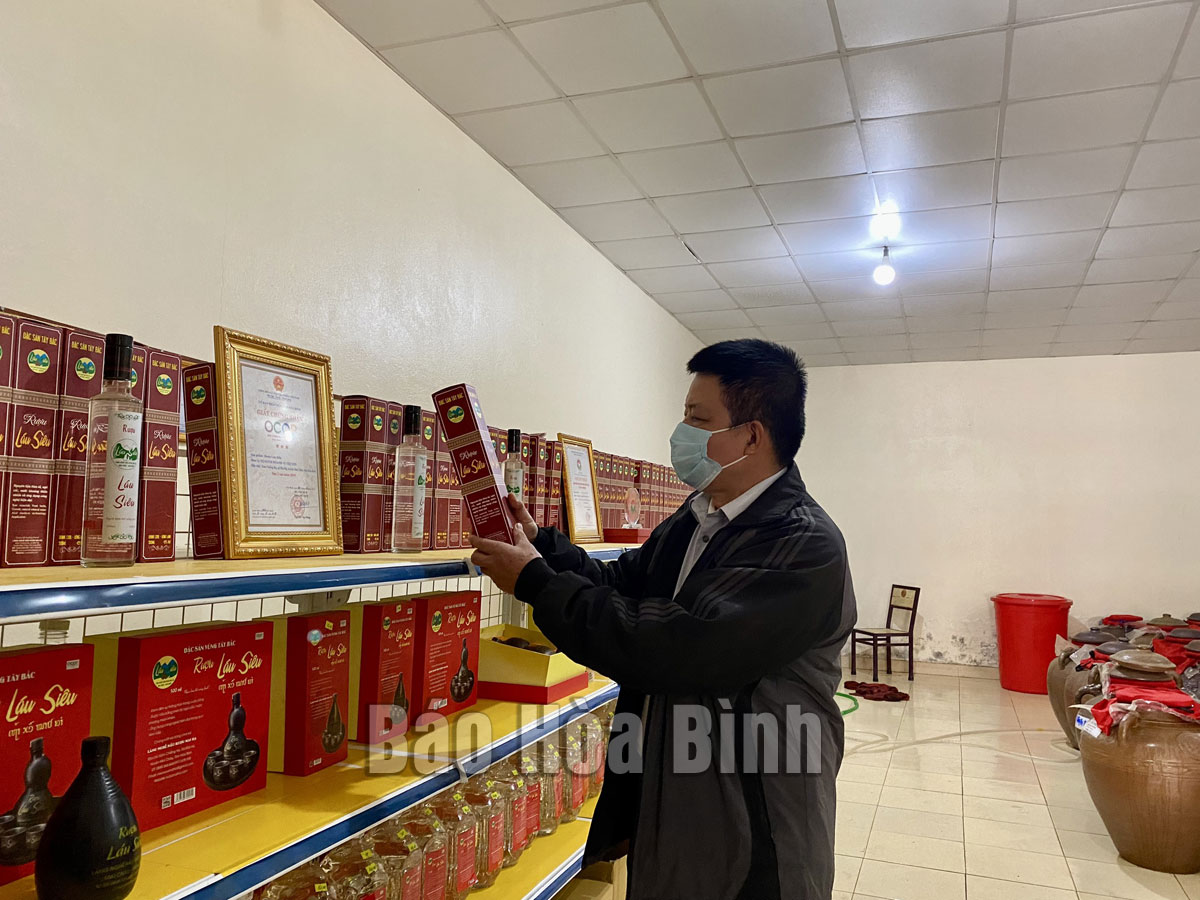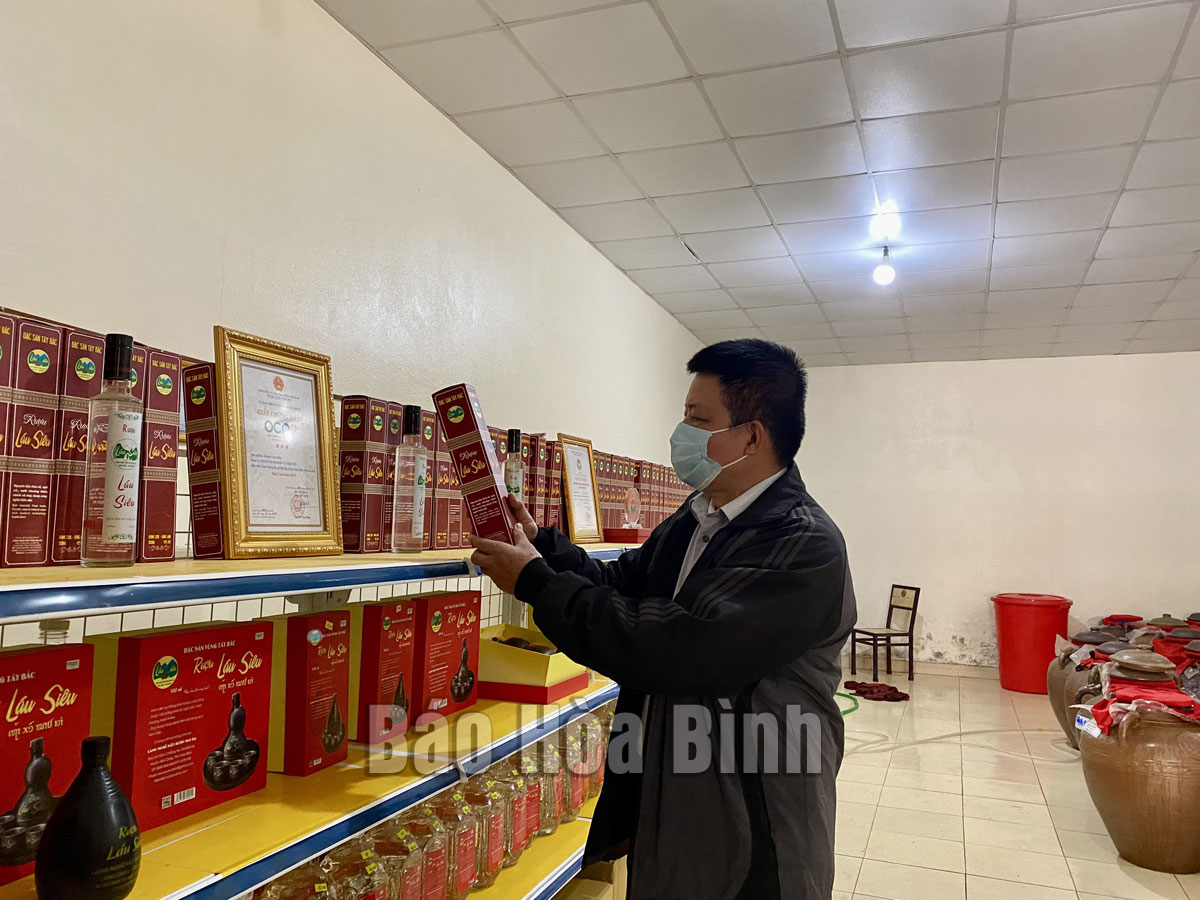(HBO) – Mai Chau district of Hoa Binh province has defined developing the craft industry as a measure to promote the industrialisation and modernisation of agriculture and rural areas, creating jobs for local people, and contributing to its socio-economic development. Over the past years, the district has engaged all-level administrations, sectors, organisations, and individuals of all economic sectors in capitalising on local advantages to develop this industry.
Lau Sieu alcohol made by business household of Vi Thi Ton in Chieng Ha hamlet, Mai Ha commune, has been recognised as a three-star product under the One Commune, One Product (OCOP) programme and become popular among visitors to Mai Chau district.
In 2021, brocade gifts and clothes of Chieng Chau brocade weaving and tourism services cooperative in Chieng Chau commune was certified to meet standards of the One Commune, One Product (OCOP) programme.
Vi Thi Oanh, deputy director of the cooperative, said with the hope of developing the traditional craft, her cooperative has instructed local women in improving their brocade weaving skills. All products of the cooperative are made by hand. After a pandemic-hit period, her cooperative has made adaptation to maintain production and ensure livelihoods for workers. It has also connected with 45 local households to produce items meeting demand of tourists from nationwide and other countries. Its products now have stable sales in Hanoi and Ho Chi Minh City and, particularly, have been exported to France.
With ethnic groups’ diverse culture, Mai Chau boasts potential and advantages to develop the craft industry, especially traditional craft villages. Given this, it has paid attention to developing this industry in tandem with implementing the new-style rural area building programme and the OCOP prorgamme.
In the district, more than 750 production establishments in the craft industry are providing jobs for over 2,450 people. Mai Chau is also home to four traditional brocade weaving villages and one alcohol producing village.
Some products of the district’s craft industry have been recognised as provincial-level OCOP ones, namely the hand-woven brocades of the brocade weaving and tourism services cooperative of Lac village in Chieng Chau commune, the Lau Sieu alcohol of the business household of Vi Thi Ton in Chieng Ha hamlet of Mai Ha commune, and the brocade gifts and clothes of the Chieng Chau brocade weaving and tourism services cooperative in Chieng Chau commune.
Besides, vocational training has also received attention with training courses held frequently, helping improve workers’ awareness and skills as well as the rate of trained labourers in Mai Chau.
Thanks to investment promotion efforts, the district has attracted more and more investors from Hoa Binh province and other localities nationwide. The organisation of trade fairs and night markets has also helped introduce local typical products to tourists.
Pham Gia Dinh, deputy head of the economic and infrastructure division of Mai Chau, said with the engagement of all-level administrations and sectors in developing the craft industry, the district has managed to mobilise and capitalise on every resource; provided financial support for production expansion, product diversification, and market development; and encourage production establishments to tap into local potential and advantages to develop the products they are strong at.
Developing the craft industry and other industries is viewed as a catalyst for economic restructuring, industrialisation, and modernisation. Therefore, Mai Chau will continue taking synchronous measures to further improve the business climate and attract investment to the craft industry development, he added./.



